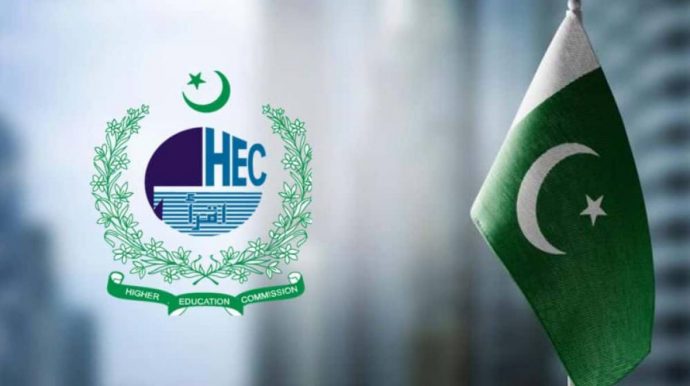
The deficit in the higher education sector has reached Rs60 billion, according to a NA authority.
On Friday, a parliamentary committee was apprised of the fact that the nation’s higher education system was experiencing a deficit of Rs60 billion.
At a meeting conducted at the Higher Education Commission (HEC) with MNA Dr. Azimuddin Zahid Lakhvi in the chair, Dr. Mukhtar Ahmed, the chairman of the HEC, briefed the National Assembly Standing Committee on Federal Education about the budgetary concerns.
The field of higher education has been lacking for a number of years.The sector experienced a deficit of Rs17.7 billion in 2018–19, and the amount is growing yearly, he said.
Speaking about the current state of affairs, he stated: “The sector is currently facing a shortfall of Rs60.1 billion. HEC needed Rs. 125 billion, but only Rs. 65 billion had been allocated for the current fiscal year.
Lawmakers emphasise the need to increase funding for education to at least 4% of GDP.
He said that the reduction in the recurring grant per student from Rs67,528 in 2018–19 to Rs50,956 in 2023–24 had further increased this imbalance.
Dr. Mukhtar emphasised the need of viewing funding for postsecondary education as an investment in Pakistan’s future.
The committee emphasised the necessity to increase the financial allocation to education to at least 4 percent of the GDP in order to set the nation on the road of progress and prosperity.
The committee further suggested that all degree-granting institutions set aside a certain percentage of their earnings for extracurricular and athletic endeavours.
In the meantime, the chairman of HEC addressed a number of aspects that impact the quality of education in response to a question from PPP MNA Rafiullah. These factors include budgetary concerns, administrative governance in universities, and foreign and internal meddling in university matters.
Prior to this, he also emphasised the necessity of provinces providing universities with ongoing money in addition to federal funding.
He emphasised, “We have to invest in Pakistan’s highly capable youth for the sake of this country’s future.”
The members of the committee also voiced grave concerns about meddling in hiring and other procedures in educational establishments.
A participant underlined that this matter was not to be only classified as “political interference,” but rather, any type of intervention, be it political or bureaucratic, ought to be strongly dissuaded.
He stated that in order to raise educational standards and guarantee that our kids receive a top-notch education, the emphasis must continue to be on boosting merit.
In the meantime, the committee committed to furthering educational endeavours by passing the Pakistan Examination Board Bill 2024 and the Nippon Institute of Advanced Sciences (NIAS) Bill 2024 with some modifications.
The committee’s chairman emphasised the importance of providing equal opportunities and facilities for students in both urban and rural schools. He also argued in favour of character development in schools that is in line with the civic bill, the sustainability of NGO-funded initiatives, and the inclusion of Chinese language instruction in foreign language curricula.
In addition, he advocated for focused outreach to underprivileged and rural communities as well as the inclusion of skill development in formal schooling.
The HEC chairman had earlier discussed the organization’s goals, stakeholders, functions, and noteworthy achievements. He said that there were 265 universities in Pakistan overall, with a gender parity of 50% male enrolment and 48% female enrolment. According to him, HEC produced 34,873 research articles and 3,427 PhD graduates in the academic year 2023–2024.

Content writer, educationist, teacher, researcher, social media manager, and a SEO manager from lahore. She has been working as a freelance academic and non-academic writer for more than 20 years now. She has a passion to learn new things and has a knack for writing and she combines both things to produce write ups she pours her heart out in.

